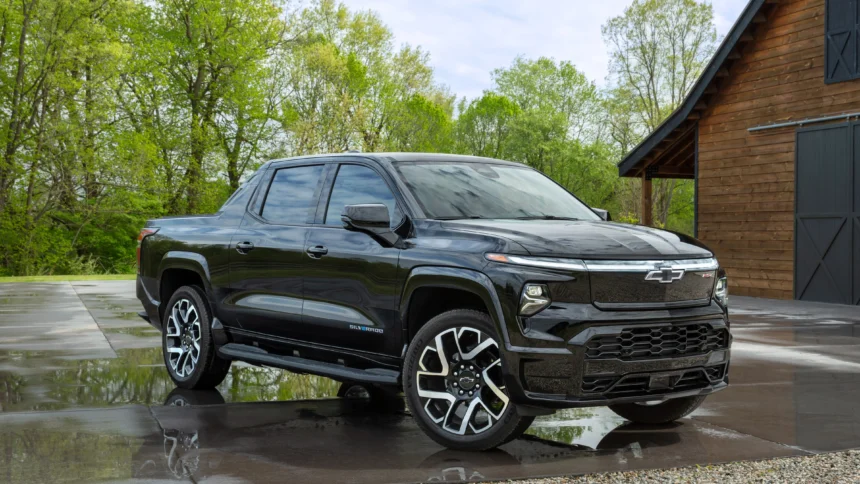General Motors (GM) is setting its sights on an ambitious goal: to be the first company to commercialize lithium manganese-rich (LMR) batteries for electric vehicles (EVs) by 2028. These innovative batteries offer more range at the exact cost, a breakthrough that could revolutionize the EV industry, especially for heavy-duty vehicles like trucks and full-sized SUVs. In partnership with LG Energy Solutions, GM is accelerating the development of this next-generation battery technology that could transform electric trucks’ performance.
What’s Happening & Why This Matters

The key innovation in GM’s upcoming LMR batteries lies in their ability to provide more energy density while remaining affordable. LMR batteries offer up to 33% more energy density using a higher proportion of the cost-effective metal manganese than other standard battery chemistries like lithium iron phosphate (LFP). GM aims to enhance the range of large vehicles, particularly trucks and SUVs, which traditionally suffer from reduced range due to their heavy weight and frequent use in towing.
Only a few EV trucks can achieve over 400 miles of range, and those models tend to come at a hefty price tag. For example, the Rivian R1T and GM’s Chevy Silverado EV can reach 410 and 450 miles, respectively, but both are priced around $100,000. With the new LMR batteries, GM plans to make EV trucks with over 400 miles of range the new standard while keeping costs competitive.

GM’s partnership with LG Energy Solutions, which holds more than 200 patents related to LMR technology, is a key part of their strategy. The companies began researching the technology in 2015 and are moving toward commercial production. The pre-production phase is expected to start by late 2027, with full-scale commercialization slated for 2028.
The LMR battery’s higher energy density makes it an up-and-coming solution for EV trucks, where range loss is a significant concern, especially when towing heavy loads. By improving these vehicles’ energy storage and efficiency, GM hopes to rival the performance of gas-powered trucks, providing consumers with an electric alternative that doesn’t compromise capability.

Future Battery Innovation
While GM’s LMR battery project is an exciting development, it is part of a larger wave of innovation in the EV battery space. Competitors are exploring various other technologies, such as solid-state batteries, silicon batteries, and lithium-sulfur options. For example, CATL, a Chinese EV powerhouse, focuses on sodium-ion batteries, while other American companies are experimenting with different materials and chemistries.
All these efforts aim to solve the key issues facing current EV technology: high costs, battery weight, range limitations, and lifespan. With a successful rollout of the LMR batteries, GM could lead the way in battery innovation and help make electric trucks and SUVs a more accessible and practical choice for consumers.
TF Summary: What’s Next
As GM moves closer to launching its LMR battery technology, the implications for the EV industry are clear: more affordable, longer-lasting electric vehicles could soon be within reach. The partnership with LG Energy Solutions positions GM at the forefront of EV innovation. However, competition will be fierce as other companies continue to explore and develop alternative battery technologies.
The industry is on the brink of major advancements, and the next few years will likely see several breakthroughs in EV battery performance. GM’s LMR batteries represent just one example of how electric vehicles could soon rival their gas-powered counterparts in both range and cost-effectiveness.
— Text-to-Speech (TTS) provided by gspeech.


